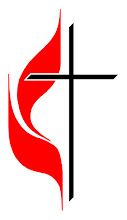It was somewhat of a challenge late May of this year to find a Newbery-award winning book for my 5th grade son to read for a book report. He reads significantly above his grade level and is easily bored. Self-described as an “I don’t believe in God person,” helping this literal child and Star Wars aficionado select a book that piqued his interest was no easy task. And then, searching for something else on my office bookshelves, I came across Madeline L’ Engle’s, A Wrinkle in Time.
The book is the first in a quintet of young adult novels that deal with deeply biblical themes. Published in 1962, A Wrinkle in Time explores salvific love through the emerging concepts of quantum physics. It sounds daunting, doesn’t it?
However, the story is more than readable and, for Christians, its themes will sound familiar. L ‘Engel was an Episcopalian who served as the librarian and author-in-residence at the Cathedral of St. John the Divine in New York City for much of her adult life. The main characters in this story, Meg Murry and her younger brother, Charles Wallace, set out across time to rescue their scientist father. The story is set in the cosmic drama of good against evil – love against lovelessness. The prologue of John’s Gospel echoes through the story and Christian readers will recognize Scriptural passages and familiar –although not named as such – biblical characters.
The book proved such an amazing way into a conversation with my son about Christian beliefs, values and practices, that we both the read the second book in the quintet, A Wind at the Door separately and then talked about it together. This book brought Psalm 139 to mind for me as we talked about height and depth, and the ways in which all life is connected to the source of Creation. My son found the science in this book interesting and it gave me the opportunity to really engage his newly emerging formal brain operations in thinking theologically. The discussions have delighted us both to the degree that we ordered the other three books in the Quintet and decided to read them out loud together over the summer months. We have just begun the third book, A Swiftly Tilting Planet and already we have discussed the balance of darkness and light in the Creation and some of the ways which that balance has been distorted by the choices human beings make. Genesis sings out from its pages. We can’t wait to see what happens next.
Early in my career as a Christian Educator, I taught an adult education class on making the theological links between secular children’s literature and biblical themes. And my experience with my son this spring and summer has reinforced my belief in the importance of Christian parents and educators reading the books their children read and drawing on the themes and parallels we find there. I remember reading The Runaway Bunny to my now 23 year-old-son for the umpteenth time and suddenly realizing that what I was hearing was Psalm 139. What books is/are your child/children reading this summer? And how can you help them make the connections between the values you find there and the Christian story in which you, your children and our faith community are living?
Grace and peace,
Dr. Elizabeth


